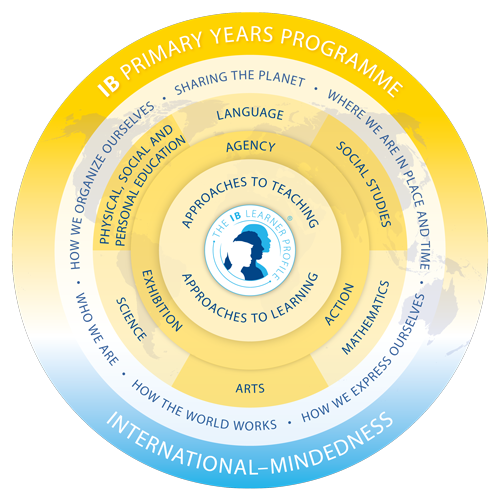Early Years Programme (Preschool)

© International Baccalaureate Organization 2024
The IB Primary Years Programme (PYP) acknowledges the unique needs of Early Learners, aged 3 to 6 years. It is a distinguishing feature of the programme which recognizes that learners in this age range require approaches to learning and teaching that honour their developmental stage, and the importance of play as the vehicle for inquiry. Early learning in the PYP is a holistic learning experience that integrates socio-emotional, physical and cognitive development. In the PYP classroom, it takes place in dynamic environments that promote play, discovery and exploration.
Experiences during the early years (3–6-year-olds) lay the foundation for positive social and cognitive learning in future years. For this reason, it is paramount that the Primary Years Programme (PYP) community values early learning as a crucial stage of development in its own right.
The IB learner profile in the PYP
The IB Learner Profile represents a broad range of human dispositions, capacities and traits that encompass intellectual, personal, emotional and social growth. All members of the learning community from the youngest learners to school leaders to parents, educators and beyond, have a responsibility to be guided by and demonstrate a commitment to the development of the IB learner profile attributes.
The learner profile requires IB learners to strive to become inquirers, knowledgeable, thinkers, communicators, principled, open-minded, caring, risk-takers, balanced and reflective.
To learn more about the IB Learner Profile, please visit the following link
Transdisciplinary Themes
A transdisciplinary approach reflects the way early learners learn—through questions and curiosity that go across and beyond subjects. Six transdisciplinary themes reflect local and global contexts that frame inquiries in a meaningful and engaging way.
Early years learners explore a minimum of four of the six themes:
1. Who we are
2. Where we are in place and time
3. How we express ourselves
4. How the world works
5. How we organize ourselves
6. Sharing the planet

